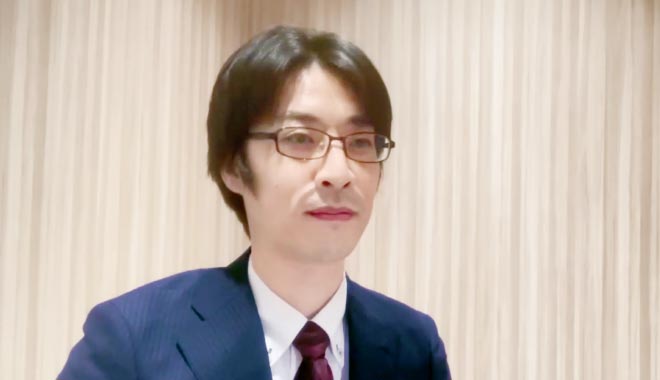Material and Equipment Development
Materials for the automated mass cultivation of iPS cells
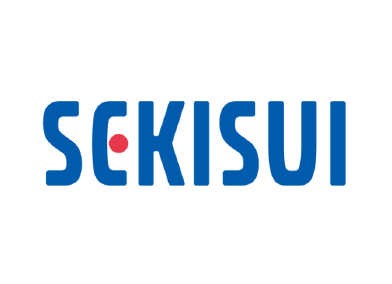
SEKISUI CHEMICAL CO., LTD.
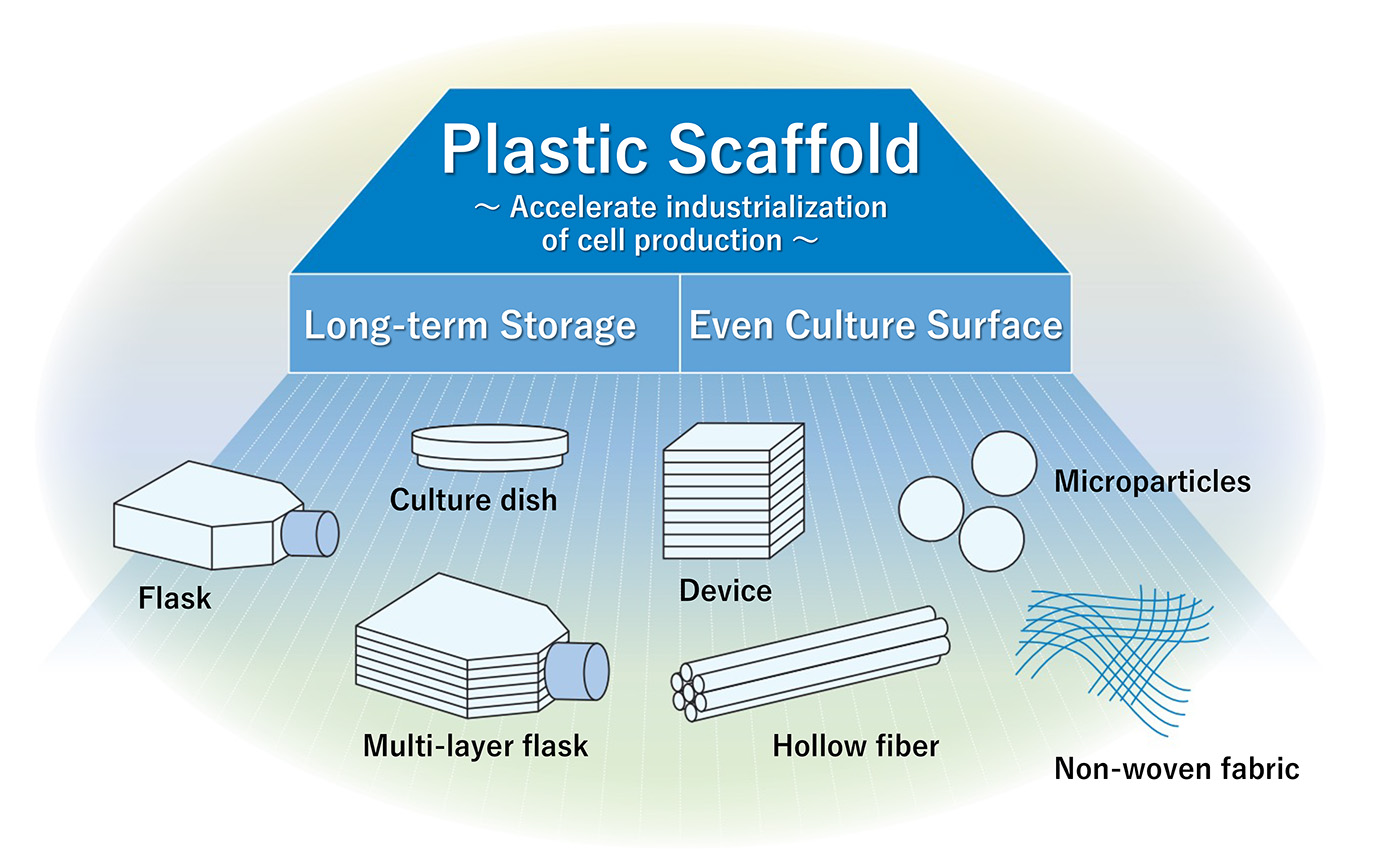
Realizing the ideal cultivation environment for mass production of iPS cells
iPS cells are attracting much attention in the fields of regenerative medicine, disease modeling, and drug discovery. Researchers from around the globe strive to quickly deliver new therapies to patients. But because a large quantity of iPS cells is required for the success of this research, we need an environment which permits stable cell cultivation.
In order to cultivate iPS cells, a “scaffold material” must be applied to the surface of the cultivation container for the iPS cells to adhere to. Normally, protein scaffolds are being used. However, it is difficult to maintain quality, as protein scaffolds are often applied unevenly to the surface.
And even in case of homogenous application, protein scaffolds are likely to leak into the culture solution or undergo thermal denaturation. As a result of these characteristics, protein scaffolds are unsuitable for long-term storage and have to be used just before cultivation.
Plastic scaffold provides two solutions
Plastic scaffold is both water insoluble and resistant to thermal denaturation (stability against heat).
The insolubility of plastic scaffold ensures an even coating of the culture surface, while the resistance to thermal denaturation enables stable, long-term storage. SEKISUI CHEMICAL has succeeded in realizing the optimal design of plastic scaffold for cell cultivation (see table below). Our plastic scaffold can be used effectively for industrial scale-up and automated cell production. We believe that plastic scaffold is a key component for the manufacturing of iPS cells and other stem cells.
We will contribute to iPS cell-based medicine by realizing automated mass cultivation through collaboration with researchers and businesses all around the world.
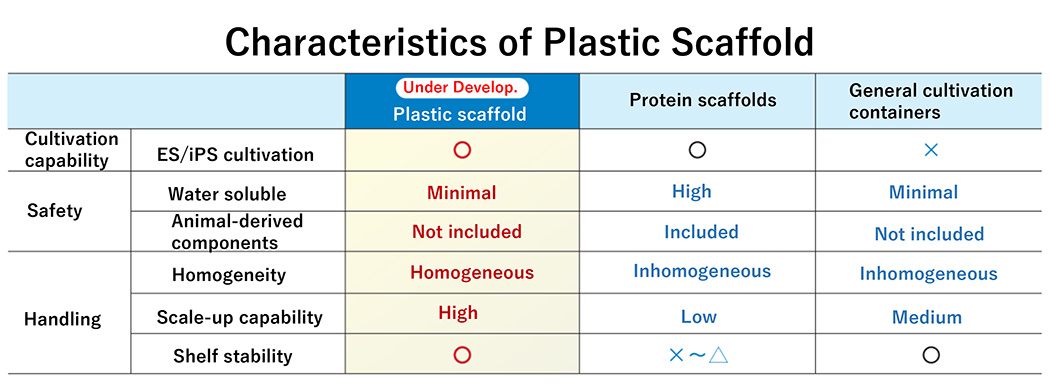
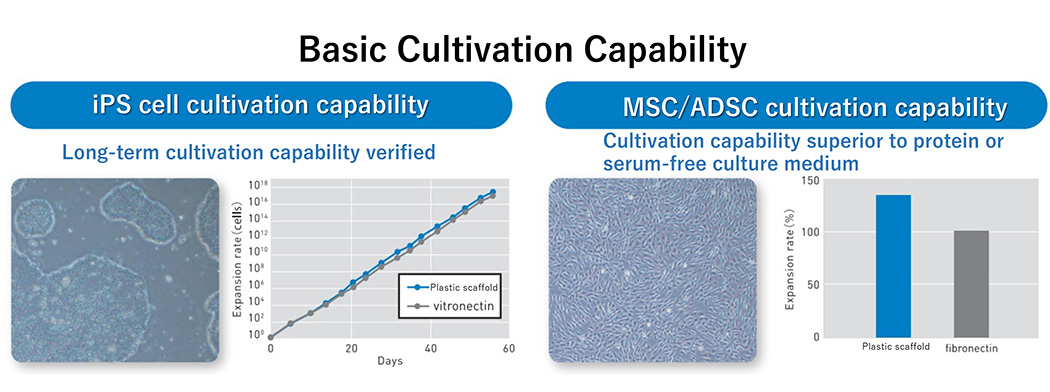
Reference:
Shimizu, E., Iguchi, H., Le, M.N.T. et al. A chemically-defined plastic scaffold for the xeno-free production of human pluripotent stem cells. Scientific Reports 12, 2516 (2022).


